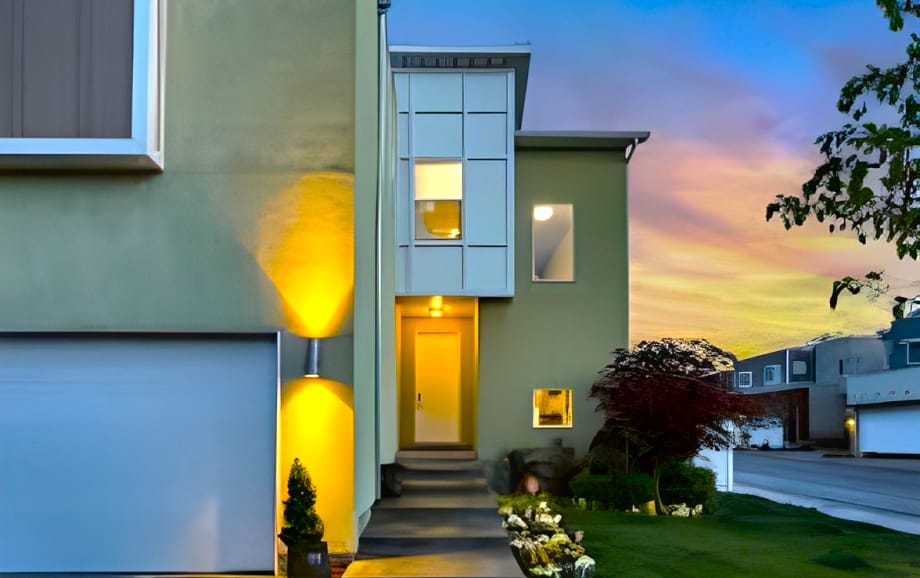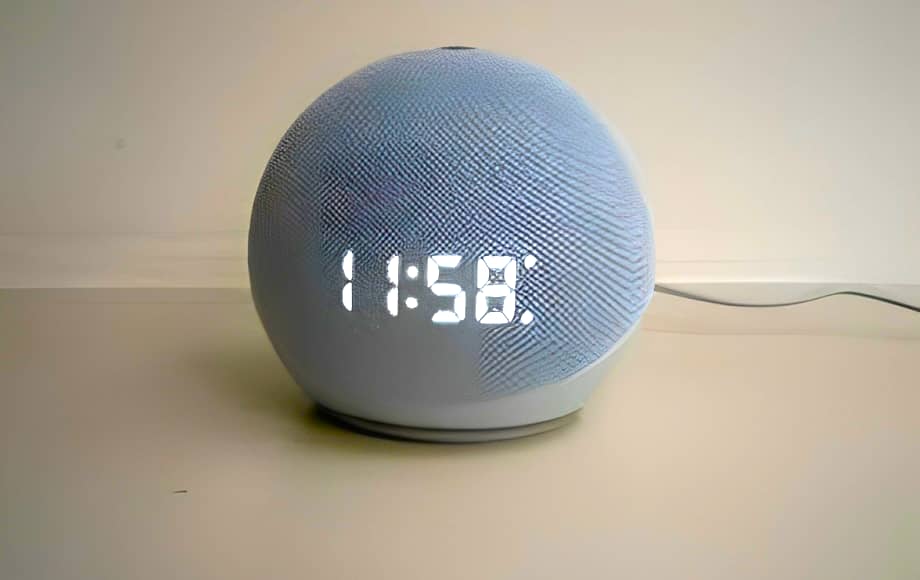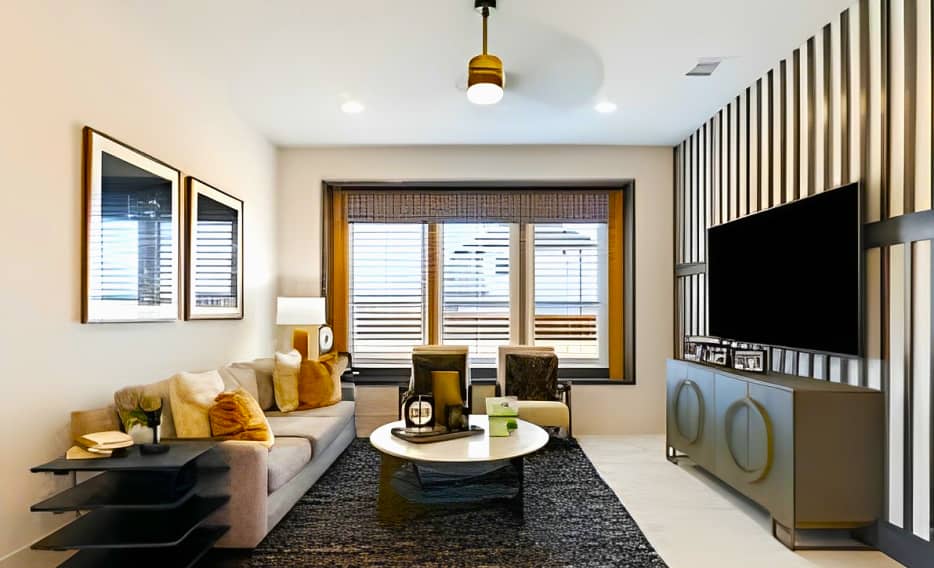Unlocking the Future: Elevating Comfort, Security, and Savings with Smart Houses and Automated Living

Smart houses use technology to give its occupants more comfort, security, savings, and convenience. Household routines are simplified in automated surroundings. With the increasing accessibility of smart gadgets, what appeared to be a far-off future is now achievable. With Wi-Fi and Bluetooth connections, they allow for a new degree of communication between the occupants of the house and the environment.
Smart houses are designed to function without human involvement, in contrast to connected homes that need user intervention to complete activities. The key to making this a reality is automation, which means that all of your home’s devices—from the television to the garage lights—have their settings and operations centralized by a system, which may be an app on your phone. Thus, choosing a virtual assistant is the first step; Alexa (Amazon) and Home (Google) are the most popular and broadly compatible options. Getting the exact devices you desire and making sure they are able to connect with the system you initially chose are the next steps.
Let’s quickly go over the advantages of an automated house before making the switch to a smart one. By remotely controlling devices, you may take advantage of enhanced security and convenience. Some examples of such functions include setting outside lights to turn on and off at certain times, regulating alarms, and shutting off an iron that has been left on. Whether you configure your air conditioning to turn on minutes before you arrive, make sure the atmosphere is colder, or schedule your coffee maker to start brewing as soon as your alarm goes off, you may improve comfort. By scheduling lights and appliances to run just during appropriate hours, the home may also save money by preventing wasteful spending. Check out the following gadgets, among others, to get your house started on this useful journey:
Virtual Assistant:

Virtual assistants are a must for setting up the automation system in a smart home. They may be downloaded as an app on your phone. As an alternative, you might get a Google Nest Mini for Home or an Echo Dot for Alexa.
Nobreak:

Electricity is necessary in a smart home to maintain an internet connection and power technological equipment. In this sense, an Uninterruptible Power Supply, or UPS, is crucial as it protects electronics from power fluctuations and outages, averting possible harm, and guaranteeing the appliances’ continuous performance.
Smart Socket :

Installing these outlets is simple and doesn’t require any renovations, making them one of the ideal devices to start developing a smart house. These outlets provide a direct electrical connection, and you can use your phone to manage any connected device thanks to their Wi-Fi connectivity. They allow you to control and schedule when the power goes on and off, which makes it easier to charge gadgets just during particular hours of the day and helps save electricity, for example.
Smart Light Bulb :

Having to use an on/off switch may feel rather ordinary after using a smart lamp. This gadget has dimming (brightness control) capabilities that may be adjusted to create a cozier environment as the night goes on. It also has the ability to schedule these tasks or run them by voice commands. You may select warmer (yellow tones) or colder (white tones) depending on the type of model and the activities taking place in the space. You can even set it to flicker in time with the music playing.
Smart Switch :

Who hasn’t had extreme reluctance to get from the couch or bed in order to just switch out the light? With smart switches, you can accomplish it with just your voice or phone, no matter where you are. You may purchase an adapter that links to the electrical system and the current switch, or you can purchase a smart wall switch. The primary benefit is that it keeps the smart bulb connected to the electrical grid, so it won’t interfere with any scheduled activities. Remember that professional installation is only advised for this one product.
Smart Locks

“Did I lock the door or not?” Use electronic locks to eliminate this concern. The door locks automatically when you leave the house and can only be unlocked using voice recognition, biometrics, or passwords. You may also select a model with a motion sensor, depending on what kind it is. Unexpected movement of the door sets off a security alert.
smart Air Conditioning

The capacity to alter settings in accordance with user preferences sets smart air conditioners apart from conventional ones. This covers operational modes, temperature control, and scheduling of activation and deactivation. After this gadget is programmed, you won’t have to worry about it not working every day. It may be programmed to switch off in the middle of the night when it is not needed and to turn on just before you enter the bedroom to cool it down. This will save electricity and save you from waking up in the cold.
Robot Vacuum

Some individuals find that mopping and sweeping require a lot of work. Not for a mechanized sweeper! During the pandemic, this gadget was popular because it kept the house tidy. Depending on the model, it may have automatic charging, be operated from a distance, have a timetable for cleaning every part of the house, and even work with virtual assistants.
Smart Refrigerator

A genuine kitchen helper, the smart fridge varies in function based on the model and has a somewhat larger investment need. These include finding recipes, playing music, monitoring whether items are running low, and remotely regulating the temperature.
Smart Television

The Smart TV is one of the first smart home appliances and has several features. Its models may differ in terms of size and image quality, but they may also include features like online gaming platforms, virtual assistants that help arrange the complete smart home, and other useful functions for everyday tasks.
Security Cameras

A security camera’s primary purpose is to monitor the house and improve security by alerting the owner and setting off on-site alarms. Additionally, a lot of individuals use this device to watch their dogs when they are by themselves at home. Ultimately, these gadgets provide real-time photos that may be observed from a distance using the applications provided by the vendors.
Frequently Asked Questions (FAQs) – A Comprehensive Guide to Smart Homes and Automation
1. What is a Smart Home?
A smart home is a house that has been outfitted with appliances and systems that make use of technology to improve energy efficiency, comfort, security, and convenience.
2. What is Home Automation?
The use of technology to manage and automate different domestic chores and operations, enabling centralized administration via a system or app, is known as “home automation.”
3. Why is a Virtual Assistant important in Smart Homes?
To set up and manage the automation system in a smart home and enable voice commands and smooth management of linked devices, a virtual assistant (like Alexa or Google Home) is essential.
4. What is a Nobreak (Uninterruptible Power Supply) and why is it essential for a Smart Home?
An Uninterruptible Power Supply (UPS), sometimes known as a Nobreak, guards against possible harm and maintains uninterrupted functioning for electronic equipment by shielding them from power fluctuations and outages.
5. How does a Smart Socket contribute to Home Automation?
A smart socket provides flexibility in scheduling power consumption for improved energy efficiency. It permits direct electrical connections and allows remote management of connected devices using Wi-Fi.
6. What are the benefits of using Smart Light Bulbs in a Smart Home?
With the help of capabilities like voice commands, scheduling, and dimming control, smart light bulbs enable users to design customized, energy-efficient lighting settings.
7. How does a Smart Switch enhance convenience in Smart Homes?
Smart switches ensure interoperability with smart bulbs and provide voice or remote control of lights without the need for physical switches.
8. How do Smart Locks contribute to Home Security in Automation?
By employing motion sensors to increase security and automatically locking when you leave, smart locks automate door security. They may also be programmed to use voice recognition, biometrics, or passwords.
9. In what ways does Smart Air Conditioning contribute to Energy Savings?
By optimizing settings, controlling temperatures, and scheduling activation, smart air conditioners enable customers to save energy by working effectively according to their preferences.
10. What are the advantages of using a Robot Vacuum in a Smart Home?
With its automated cleaning, remote control, scheduling features, and virtual assistant integration, a robot vacuum streamlines home tasks.
11. How does a Smart Refrigerator function as a kitchen helper?
A smart refrigerator improves kitchen convenience by helping with things like recipe discovery, inventory management, and remote temperature control.
12. What features does a Smart Television offer in a Smart Home?
Beyond their conventional uses, smart TVs may be used for things like virtual assistant integration, online gaming, and contributing to the ecosystem of smart homes.
13. How do Security Cameras enhance Home Security in Automation?
With the help of specialized programs, security cameras monitor a house and provide real-time photos and warnings to enhance security and enable remote surveillance.
14. What role does Home Technology play in Automated Living?
The integration of smart devices and systems to create an automated living environment that improves convenience and efficiency is referred to as home technology.
15. How does Automated Living contribute to Convenience in Smart Homes?
Automated living offers convenience by streamlining daily tasks and facilitating the smooth operation of smart gadgets through centralized control.
16. How can Smart Home Gadgets be selected for an effective home automation setup?
An efficient smart home setup depends on selecting suitable gadgets and making sure they work flawlessly with the automation system or virtual assistant of choice.
17. How do Smart Homes contribute to Energy Savings?
By enabling users to remotely manage and schedule gadgets, smart homes encourage energy conservation by reducing unnecessary energy use.
18. What is the significance of Wi-Fi and Bluetooth connections in Smart Homes?
Connectivity between smart devices is made possible via Wi-Fi and Bluetooth, which serve as the foundation for automated and networked smart home ecosystems.
19. How can Home Security be enhanced through Automation?
Automation improves home security by offering strong defense against possible attacks with technologies like automatic alarms, security cameras, and smart locks.
20. How can I start building a Smart Home with Home Automation?
In order to establish an effective and connected living space, choose a virtual assistant first, then progressively add smart gadgets by selecting compatible equipment.
